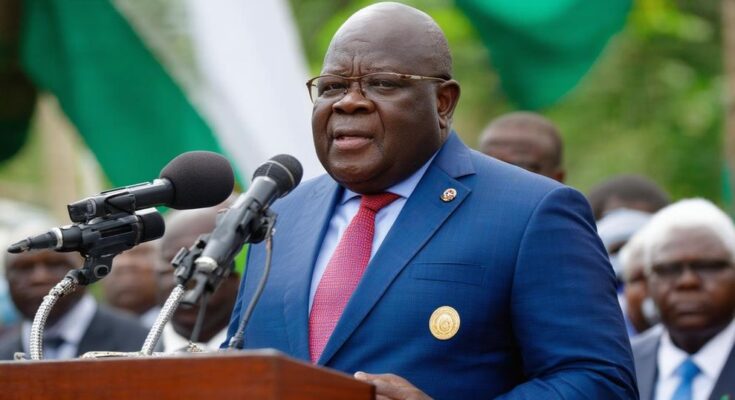Democratic Republic of Congo President Felix Tshisekedi plans to form a commission to discuss potential constitutional reforms aimed at removing term limits. This initiative has drawn significant criticism from opposition leaders, who argue that it is a strategy to maintain power amidst ongoing issues of governance. Tshisekedi asserts the need for the constitution to evolve with the country’s current circumstances, positioning the populace as a determining factor in any potential changes.
In a recent announcement, President Felix Tshisekedi of the Democratic Republic of Congo revealed his intentions to establish a commission dedicated to exploring constitutional reforms, which may include the elimination of presidential term limits. This potential amendment is seen by many as an attempt by President Tshisekedi to extend his rule beyond the limits set by the current constitution. The 2005 constitution was ratified following a referendum, yet Tshisekedi posits that it no longer reflects the nation’s current realities. During a gathering with supporters in Kisangani, he asserted, “You have heard about a potential change to the constitution, we should not be afraid that this subject will be addressed.” He underscored the need for the populace to have a voice in determining whether their leaders could serve beyond two terms, stating, “This story of two terms that the current constitution requires, the people must decide if they want us to change.” However, this proposal has drawn significant criticism from opposition leaders, who view it as a maneuver to consolidate power in a country already fraught with political turbulence due to its contentious democratic landscape. Opposition figures, including Claudel Lubaya, have expressed concern that such moves are detrimental to the public’s aspiration for accountability and governance, emphasizing that the current regime is prioritizing its political survival over the need for transparent leadership. Moise Katumbi, who was a contender in the last elections, reiterated that the constitution receives widespread public support and that the nation’s challenges stem from governance issues rather than the constitutional framework itself.
The Democratic Republic of Congo has a long history characterized by political instability and conflict, making the matter of constitutional reform particularly sensitive. The constitution currently mandates a two-term limit for presidents, a provision designed to prevent the entrenched rule of political leaders often seen in various other African nations. President Tshisekedi’s proposal for reform arises amid public anxieties regarding democratic processes and the potential for authoritarian governance. The political climate in the Congo is historically volatile, frequently overshadowed by past leaders who have manipulated constitutional laws to extend their tenures.
In summary, President Tshisekedi’s proposals to alter the constitution to potentially remove presidential term limits have ignited widespread criticism from opposition leaders who view such actions as self-serving and detrimental to democratic ideals. Despite his assertions that constitutional changes should reflect the will of the people, the historic context of political upheaval in the Democratic Republic of Congo raises concerns about the true intentions behind these proposals. The opposition calls for a focus on governance, rather than constitutional amendments, reiterating that stability and transparency must take precedence in the nation’s governance.
Original Source: www.usnews.com




